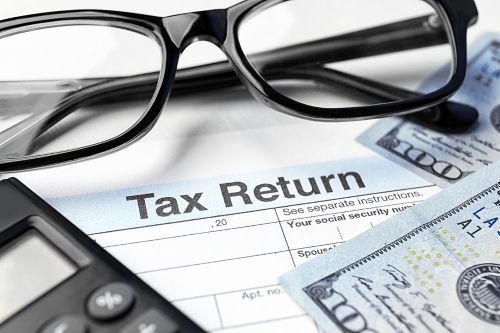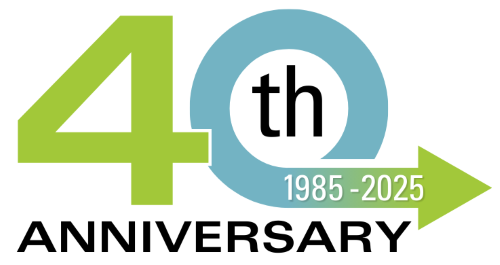Shredding Best Practices for Tax Day & Year-Round
Tax Day in the USA
Tax Day in the U.S. is Tuesday, April 15, 2025, marking the deadline to file your income tax returns with the Internal Revenue Service (IRS). If you’re an American living abroad, you have until June 16, 2025, to file and pay your taxes. Interestingly, federal tax returns were not always due on April 15. Initially, the date was March 1 back in 1913, moved to March 15 in 1918, and finally changed to its current date in 1954. Although the extra time might seem helpful for preparing and filing your returns, it also increases the window for identity theft and fraud.
As Tax Day approaches, it’s crucial to safeguard your personal and financial information. Tax documents often contain highly sensitive data like Social Security numbers, bank account details, and financial statements. Properly shredding unnecessary documents is one of the most effective ways to protect yourself from identity theft and fraud year-round, not just during tax season.
1. Document Security
Identity thieves regularly target unsecured personal and financial data, particularly around tax season. Unprotected stacks of paperwork such as outdated financial statements, old tax documents, and receipts pose significant risks. Secure shredding ensures that sensitive information is thoroughly destroyed, preventing criminals from retrieving and misusing it.
2. Risks of Keeping Unnecessary Paperwork
Holding onto outdated paperwork isn’t just inconvenient—it’s also risky. These documents can quickly pile up, creating clutter and making it challenging to manage essential records. Additionally, unnecessary documents can become easy targets for identity theft or privacy breaches. The longer sensitive records remain unsecured, the higher the potential risk of misuse.
3. What Documents Should You Shred?
Not all documents need shredding, but understanding which ones do is key to keeping your personal information secure:
Tax Documents
Tax records, including W-2 forms, 1099s, and past tax returns, typically need to be kept for three to seven years. After this period, shred them securely to minimize identity theft risks.
Outdated Financial Records
Bank statements, investment paperwork, and receipts for major purchases usually only need to be retained for about three years. Once past their usefulness, shred these documents to ensure security.
Personal Information
Any document containing personal identifiers such as Social Security numbers, bank account information, passwords, old medical records, or insurance details should be shredded as soon as they’re no longer needed.
4. Establishing a Year-Round Shredding Routine
Rather than waiting until Tax Day, create a consistent shredding schedule to maintain security and reduce clutter:
Scheduled Shredding
Regularly schedule time monthly or quarterly to review and shred unnecessary paperwork. This proactive approach prevents document buildup, reduces clutter, and makes it easier to manage essential documents.
Secure Shredding Bin
Use a secure, locked shredding bin at home or the office to safely store sensitive documents until you’re ready to shred them. This practice helps prevent unauthorized access to confidential information.
Choosing a Professional Shredding Service
If handling shredding yourself seems overwhelming or you produce large amounts of paperwork, consider partnering with a professional shredding service. Many providers offer convenient, scheduled shredding services, securely disposing of your documents and ensuring peace of mind.
5. Digital Tax Records Security
With increasing digital documentation, securing electronic files is equally critical:
Clearing Electronic Files
Merely deleting files doesn’t permanently remove them. To ensure sensitive financial information is irrecoverable, use a secure hard drive and media destruction service.
Secure Cloud Storage
Utilizing reputable cloud services with strong encryption practices helps protect your digital records. Regularly review and delete outdated files to keep your cloud storage organized and secure.
6. Complying with Privacy Laws
Data privacy regulations are essential for protecting personal information. Non-compliance can result in legal penalties:
Data Protection Laws
Familiarize yourself with privacy laws such as the Fair and Accurate Credit Transactions Act (FACTA), which mandates secure document destruction to prevent identity theft. Understanding these regulations ensures you’re compliant and protected.
Audit Trails
Businesses handling sensitive client information should maintain audit trails of document destruction, recording the dates and methods used for shredding, demonstrating compliance with privacy regulations.
7. Environmental Considerations
Shredding doesn’t have to negatively impact the environment:
Recycling Shredded Material
Opt for shredding providers that offer recycling services. Proper recycling ensures shredded documents don’t end up in landfills, reducing environmental impact.
Eco-Friendly Shredding
Choose shredding services that use environmentally-friendly practices, such as energy-efficient processes or repurposing shredded materials into new paper products.
Secure shredding is essential year-round, protecting you from identity theft and privacy breaches. Establishing consistent shredding habits, securely managing digital files, and adhering to privacy laws significantly reduces risks associated with document disposal.
For comprehensive shredding solutions, partner with DataSafe, serving Portland, Oregon, Vancouver metro areas, and Southern Washington state for over 40 years. As Tax Day approaches, enhance your security by contacting us at: Portland 503-620-3423 or Vancouver (360) 218- 2582 or completing the form on this page today.

Get Your Quote
"*" indicates required fields

